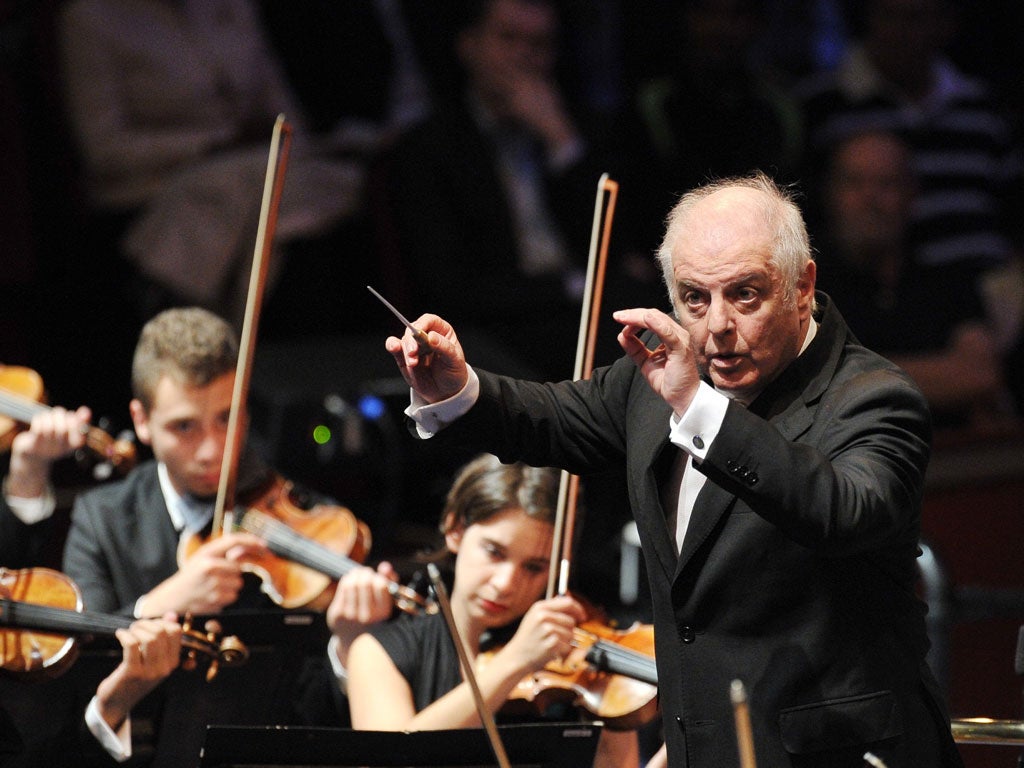Prom 9: Barenboim/West-Eastern Divan Orchestra, Royal Albert Hall, London

Audacious, perhaps, to lure an audience of thousands with promises of Beethoven, then let Pierre Boulez steal the show. Daniel Barenboim and the West-Eastern Divan Orchestra placed Boulez’s Dérive 2, a work for 11 musicians that lasts for 50 unbroken minutes, at the core of the first evening of its complete Beethoven symphonies cycle. The result: a revelation.
Based on a musical 'cipher' (the notes are letters) on the name of the philanthropist Paul Sacher, the work unfolds like a phantasmagorical narrative poem. Boulez’s apparently limitless imagination conjures up gorgeous sonorities; the instrumentation – piano, harp, marimbaphone, vibraphone, low woodwinds, violin and cello – is percussion-rich yet never sounds percussive.
Barenboim brought to it a necessary clarity, drawing out drama, highlighting the progression of atmosphere, gesture and incident. If it gets to you, this music can push back horizons and transform perceptions at a deep level. The atonal language takes effort, though, and some in the hall didn't stay the course. Catch it on the BBC iPlayer and make up your own mind.
It's 13 years since Barenboim and the Palestinian writer Edward Said founded the WEDO, bringing together young musicians from Israel and the Arab nations (now plus some from Spain) to find common purpose in shared music-making. The orchestra has come of age, audibly so. This was the playing of seasoned professionals, with egos, never mind politics, subsumed to the demands of the composer. Odd to find no full list of the musicians’ names in the programme, only those of the Boulez soloists; there was no way to assess how many from each place were on.
So what exactly has the WEDO grown up into? Well, you might call it Orchestra Barenboim. Having coached its returning core of players for so long, Barenboim now has at his fingertips his own personal ensemble, which he can play like a piano, so attuned are its members to his musicianship.
Beethoven’s Symphony No.1 displayed the advantages of this, with rapt attention to detail and a fine unity of purpose. Refreshing, too, to hear Beethoven on modern instruments, unencumbered by the raggedy edges and cardboardy drums that can sometimes mar period-style performances; Barenboim’s approach wouldn’t have been out of place 40 years ago. Yet in the Symphony No.2, post interval, matters seemed to have gone slightly off the boil; this charming and Haydnesque work could have done with less constant intensity and a lot more fizz.
Join our commenting forum
Join thought-provoking conversations, follow other Independent readers and see their replies
Comments